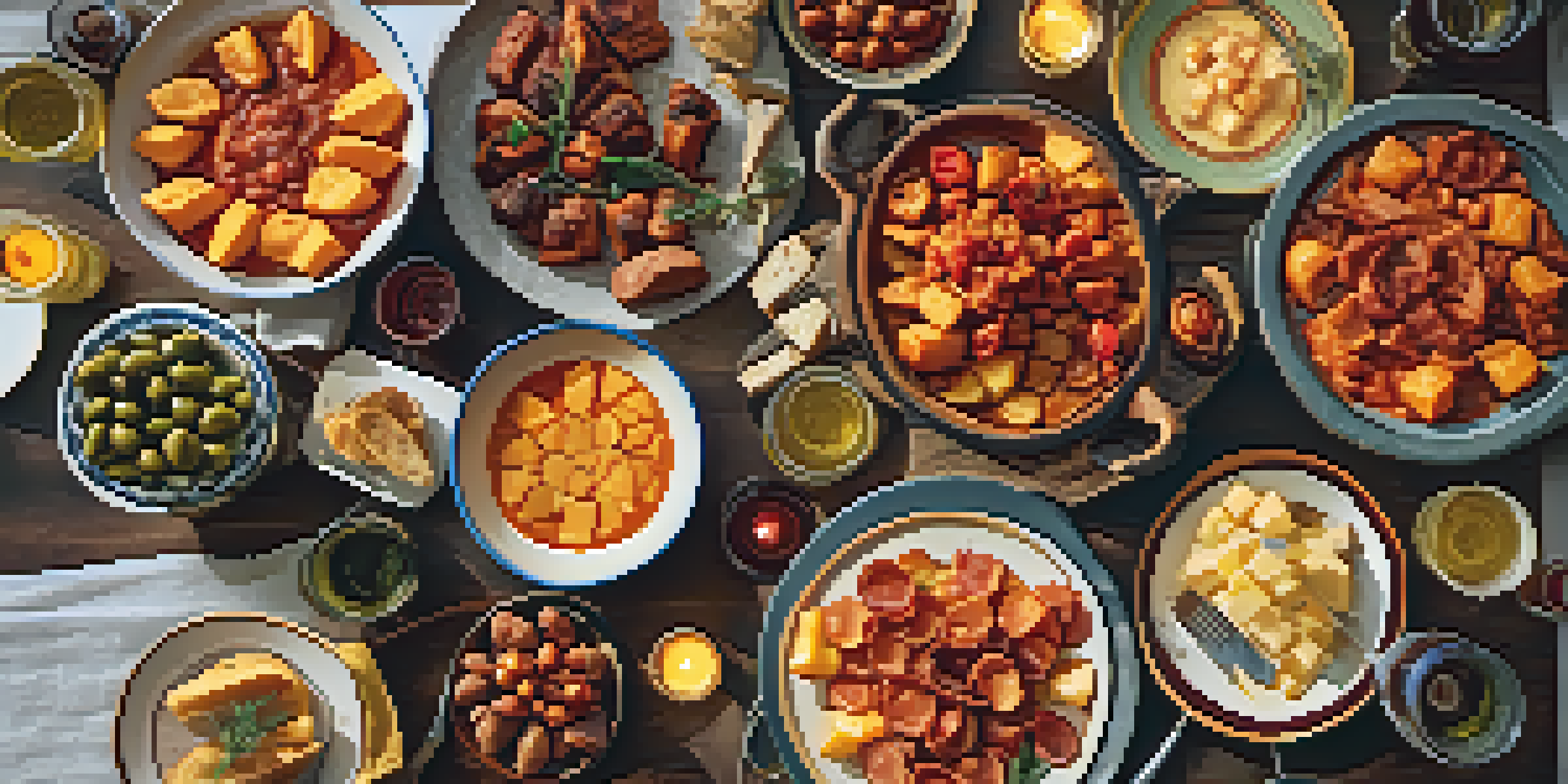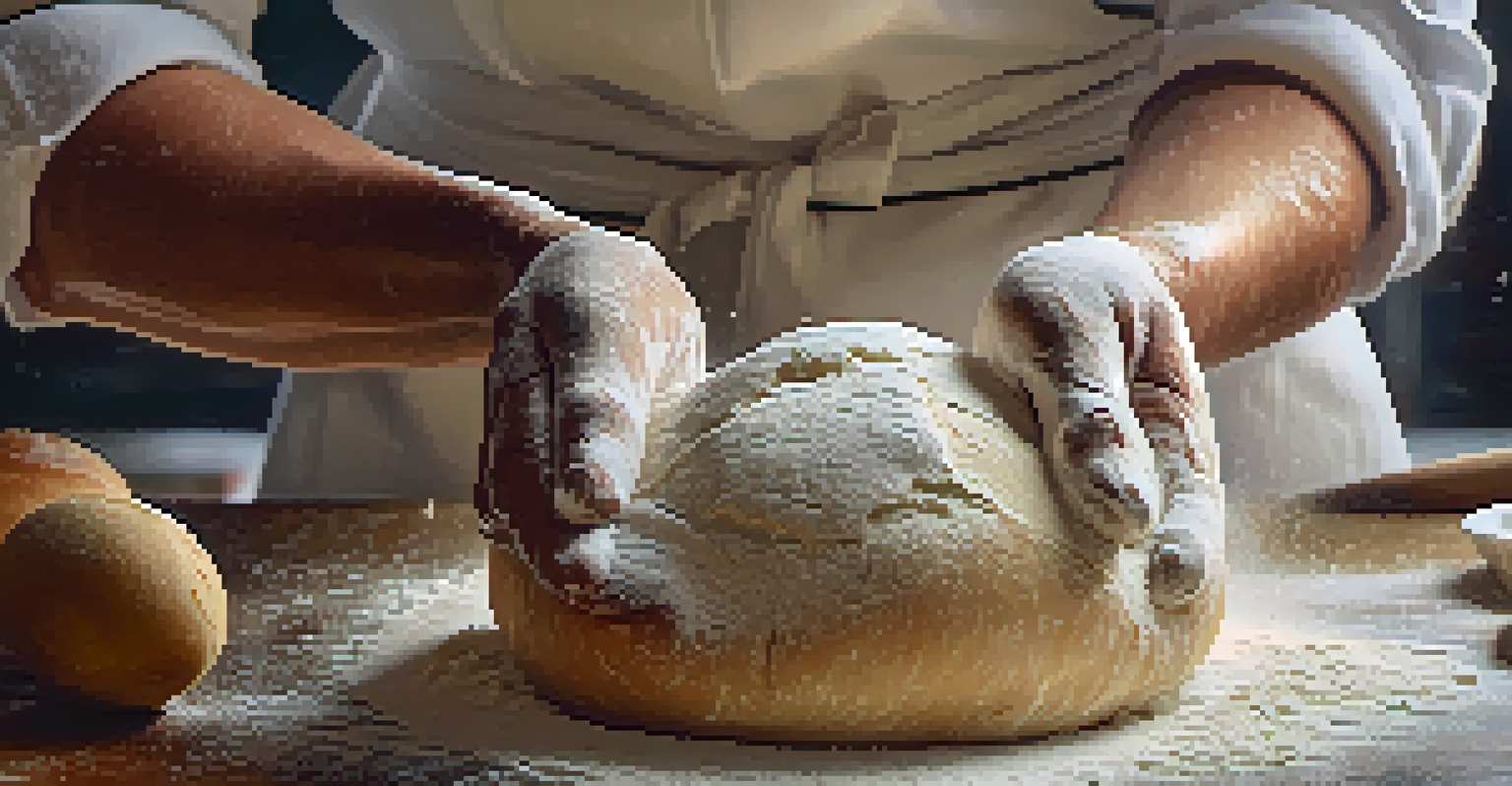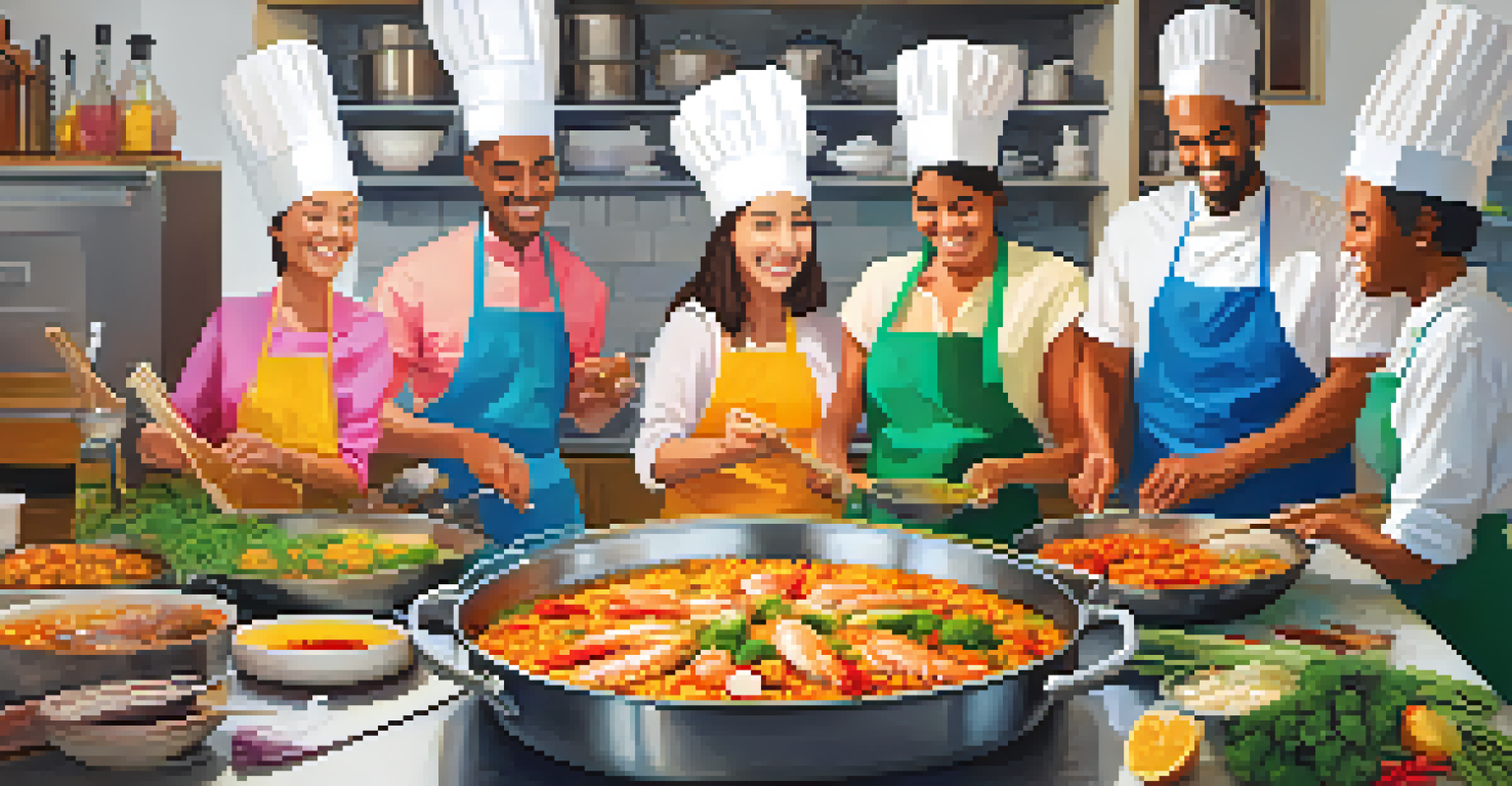Explore Traditional Spanish Cuisine in Culinary Workshops

What Makes Spanish Cuisine Unique and Flavorful
Spanish cuisine is a delightful tapestry of flavors, influenced by various cultures and regions. From the Moorish spices of Andalusia to the fresh seafood of Galicia, every bite tells a story. The use of high-quality, local ingredients is essential, allowing the natural flavors to shine through in every dish.
Cooking is like love. It should be entered into with abandon or not at all.
One of the hallmarks of Spanish cooking is its emphasis on communal dining. Meals are often enjoyed with family and friends, featuring a variety of tapas that encourage sharing. This not only highlights the diversity of flavors but also fosters a sense of togetherness around the table.
In culinary workshops, participants can explore these unique elements firsthand, learning to create classic dishes like paella or gazpacho. Each recipe reveals the rich history and culture behind Spain’s culinary traditions, making the experience both educational and delicious.
The Joy of Learning Through Hands-On Experience
Culinary workshops offer a hands-on experience that brings the joy of cooking to life. Participants get the chance to chop, sauté, and season, turning fresh ingredients into mouth-watering dishes. This interactive approach not only boosts confidence in the kitchen but also makes learning enjoyable.

Imagine kneading dough for traditional Spanish bread or mixing spices for a flavorful sofrito—these activities engage all the senses. The aromas, textures, and colors create an immersive experience that enhances understanding and appreciation of the culinary arts.
Hands-On Learning Enhances Skills
Culinary workshops provide a hands-on experience that boosts confidence and creativity in the kitchen.
Moreover, these workshops often provide insights into techniques used by professional chefs. Participants can learn about the importance of timing, seasoning, and presentation, taking their cooking skills to the next level and allowing them to replicate these dishes at home.
Exploring Regional Specialties of Spain in Workshops
Spain's culinary landscape is incredibly diverse, with each region boasting its own specialties. For instance, participants in workshops may explore the rich flavors of Catalonia, from its savory calçots to its famous crema catalana. Each dish reflects the local ingredients and traditions, offering a taste of the region's culture.
Food is our common ground, a universal experience.
The Basque Country is another region that captivates food lovers with its pintxos, small bites that are perfect for sharing. Culinary workshops often delve into these unique dishes, allowing participants to recreate them while learning about their origins and significance.
By focusing on regional specialties, workshops not only celebrate Spain’s culinary diversity but also encourage participants to appreciate the cultural nuances behind each dish. This exploration enhances the overall experience, making it more than just a cooking class.
The Role of Olive Oil in Spanish Cooking
Olive oil is the backbone of Spanish cuisine, a staple that enhances flavors and adds depth to dishes. Known for its health benefits, it is used generously in everything from dressings to frying. In culinary workshops, participants often discover the difference between various types of olive oil and how to choose the best one for their recipes.
Learning to use olive oil correctly can elevate a dish from ordinary to extraordinary. Workshops typically cover techniques such as drizzling it over finished dishes or using it as a base for marinades. This knowledge not only improves cooking skills but also fosters a deeper connection to the ingredients.
Spanish Cuisine Celebrates Diversity
Spanish cuisine is a rich blend of regional flavors, with communal dining and tapas fostering a sense of togetherness.
As participants experiment with olive oil in their dishes, they gain an appreciation for its versatility. This exploration encourages them to incorporate this essential ingredient into their cooking at home, enhancing their culinary repertoire.
Embracing the Art of Tapas in Culinary Workshops
Tapas are a quintessential part of Spanish dining, offering a delightful way to sample various flavors in one meal. In culinary workshops, participants learn to prepare a range of these small plates, from patatas bravas to chorizo al vino. The beauty of tapas lies in their variety, allowing everyone to find something they love.
The process of creating tapas encourages creativity in the kitchen, as participants can mix and match ingredients to craft their own unique combinations. Workshops often emphasize the importance of presentation, turning simple dishes into visually appealing works of art.
Sharing tapas also embodies the spirit of Spanish dining, promoting conversation and connection around the table. This communal aspect makes the experience not only about the food but also about building relationships with others, mirroring the way meals are enjoyed in Spain.
Desserts: A Sweet Conclusion to Spanish Culinary Adventures
No exploration of Spanish cuisine would be complete without indulging in its delightful desserts. From flan to churros, these sweet treats add a perfect finishing touch to any meal. Workshops often include sessions dedicated to creating these classic desserts, allowing participants to satisfy their sweet tooth while honing their baking skills.
Spanish desserts are often characterized by their simplicity and use of fresh, quality ingredients. For example, learning to make a traditional almond cake or a refreshing citrus sorbet can open up new avenues for home bakers. These recipes are typically straightforward, making them accessible for cooks of all skill levels.
Community Builds Connection Through Cooking
Culinary workshops create a sense of community, allowing participants to bond over shared culinary experiences.
As participants savor their creations, they leave with not just a recipe but also a deeper understanding of the cultural significance behind these desserts. This sweet conclusion to their culinary journey leaves a lasting impression, encouraging them to recreate these flavors at home.
The Community Aspect of Culinary Workshops
Culinary workshops are more than just cooking classes; they create a sense of community among participants. People from diverse backgrounds come together, united by their love for food and learning. This shared experience fosters friendships and connections that extend beyond the kitchen.
As participants collaborate on recipes, they exchange tips and techniques, enriching the overall experience. The supportive environment encourages everyone to step out of their comfort zones and try new things, whether it’s tasting an unfamiliar dish or experimenting with bold flavors.

Ultimately, the community aspect of these workshops enhances the enjoyment of cooking. Participants leave not only with new skills but also with a sense of belonging, making the culinary journey all the more rewarding.